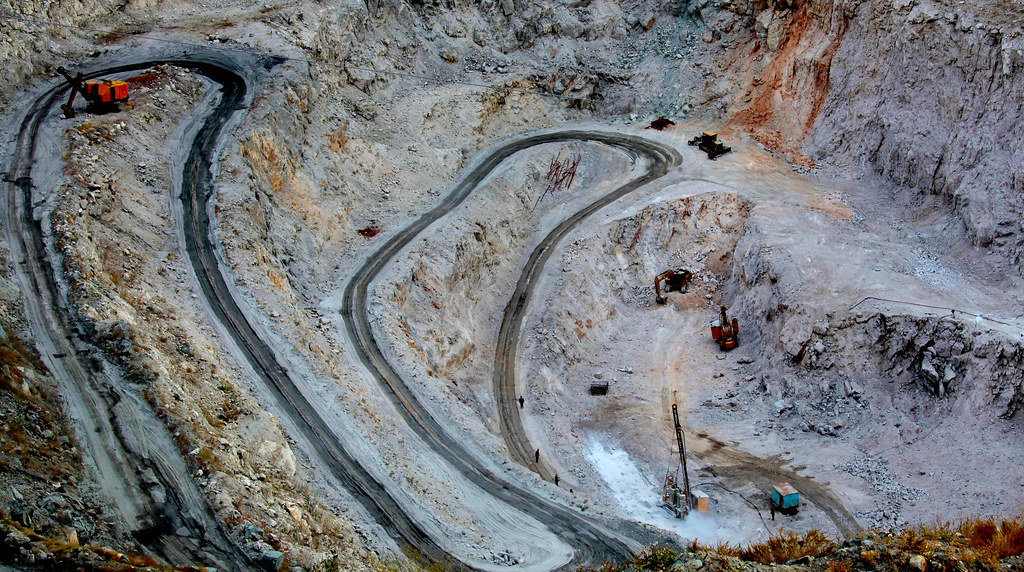What will China do to maintain dominance over rare earths

China has approved the creation of one of the largest rare earth companies in the world, writes the Wall Street Journal: through the newborn group it wants to maintain leadership in the sector of these strategic metals. All the details
The Wall Street Journal writes that China has approved the creation of one of the largest rare earth companies in the world, with the aim of maintaining its dominance in the global supply chains of these highly strategic metals.
WHAT ARE RARE LANDS
Rare earths – a group of seventeen metallic elements – are in fact crucial for the production of electronic devices such as smartphones, ecological transition technologies such as wind turbines and electric cars, and war tools such as aircraft and missile systems.
A big geopolitical question has developed around rare earths due to the fact that China controls about 80 percent of their world supply, and no country – starting with the United States – wants to expose itself to such a great dependence.
WHAT CHINA RARE EARTH GROUP WILL DO
The new Chinese company anticipated by the Wall Street Journal will be called China Rare Earth Group and will have its headquarters in Jiangxi province: it is located in southern China, and is rich in mineral resources. The group will arise from the merger of rare earth assets owned by various Chinese state-owned companies such as China Minmetals, Aluminum Corp. of China and Ganzhou Rare Earth Group.
The purpose of the group is threefold. Through China Rare Earth Group, first of all, Beijing wants to strengthen its "weight" on the rare earth market and its ability to set prices. The merger will then serve to avoid conflicts between the various Chinese operators in the supply chain. The ultimate goal, the sum of the two previous ones, is to reaffirm Chinese control over the rare earth industry and complicate American efforts (above all) to gain shares in this sector.
The estimates, which are not always consistent, say that China alone is worth 70 percent of the segment of the extraction of rare earths and 90 percent of their refining into magnets (a complex and expensive activity). The United States, on the other hand, claims that Beijing controls 55 percent of rare earth extraction on a global scale and 85 percent of refining.
The Wall Street Journal writes that it is unclear whether China Rare Earth Group will operate across China or focus in Jiangxi, and whether – and how – Inner Mongolia rare earth operations will be involved in the project. In 2019, Chinese President Xi Jinping visited a rare earth plant in Jiangxi: it was a gesture of great symbolic value, and it convinced Western governments even more that the leadership of the People's Republic knew very well the strategic importance. of these elements.
THE RARE LANDS AS A GEOPOLITICAL WEAPON
Dominance over rare earth supplies gives Beijing an important lever of geopolitical influence, similar to that historically possessed by OPEC with oil. Given the competition that opposes them, America fears that China could use that lever to restrict or block exports of rare earths, limiting their supply and causing their prices to skyrocket, affecting the American economy and putting I risk the success of ecological and digital transitions.
The Global Times , an English-language tabloid linked to the Communist Party of China, wrote some time ago that Beijing has no intention of using rare earth exports in retaliation to other countries, but could do so if its interests are harmed by "foreign companies" .
THE MOVE OF THE UNITED STATES
As part of a broader plan to gain greater centrality in the rare earth sector, last February the US Department of Defense signed an agreement with the Australian company Lynas: the Pentagon called it "the mining and processing of rare earth elements largest outside of China ". The agreement calls for Lynas to build a light rare earth treatment plant in Texas.
On rare earths, President Joe Biden signed an executive order to rank the sector among the most important for American national security, opening up to the definition of policies to strengthen supply chains.
In June, a White House document said the US should expect China to announce restrictive measures on rare earth exports.
HOW CHINA MOVES
The Wall Street Journal writes that for over a decade the Chinese authorities have been pursuing a plan to consolidate the extraction, production, trade and export of rare earths within a small number of state-owned companies. They set maximum production and export quotas and in 2014 they further restricted the number of industrial players to six: in this way, the newspaper explains, they aimed to rationalize a disordered sector populated by small businesses. Beijing justified the operation with the need to protect the environment: the extraction and processing of rare earths are activities with a high impact on the territory.
The 2014 squeeze followed a World Trade Organization ruling in favor of the United States accusing China of violating global trade policies by imposing export restrictions on various metals such as tungsten and molybdenum, causing them to grow prices.
This is a machine translation from Italian language of a post published on Start Magazine at the URL https://www.startmag.it/energia/cina-terre-rare/ on Sat, 11 Dec 2021 07:05:49 +0000.
